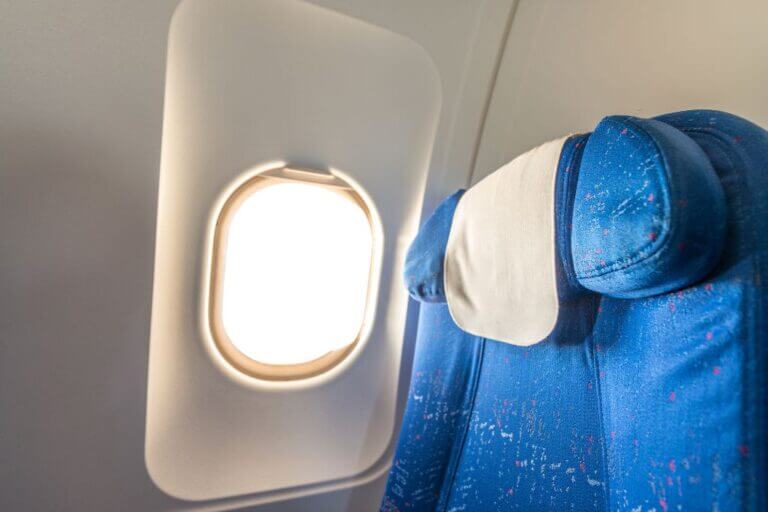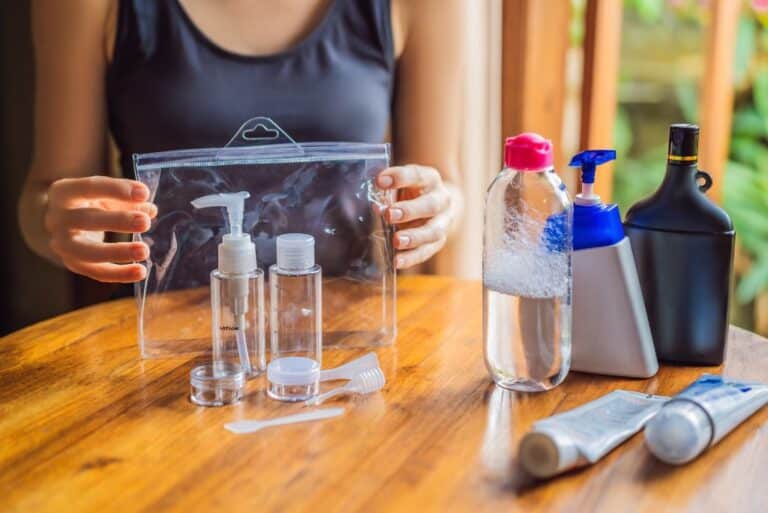Essential Travel Medications: Here’s What To Pack For A Worry-Free Trip
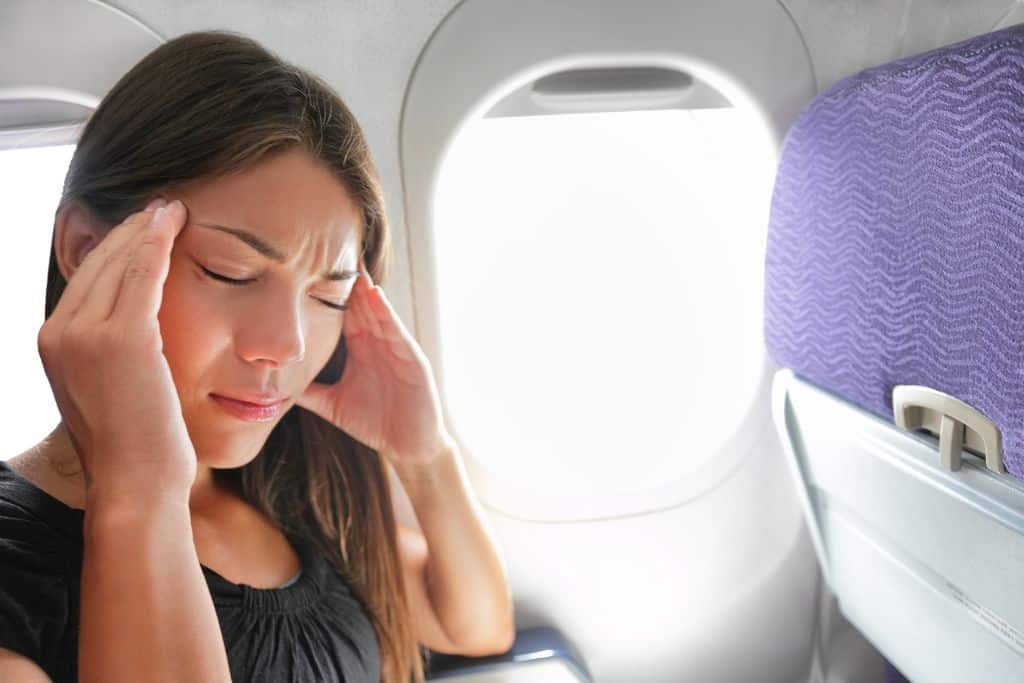
Ready For Your Next Vacation, But Not Sure What Medications To Pack? Keep Reading To Find Out!
So, what are some essential travel medications that I should pack?
Nothing can derail a dream vacation faster than a pounding headache, an unexpected stomach bug, or a nasty flu.
Whether you’re heading to a tropical paradise, exploring a bustling city, or venturing off the beaten path, being prepared with the right medications can make all the difference between a smooth trip and a stressful one.
As a frequent traveler, I’ve learned that packing smart doesn’t just mean bringing the right clothes.
It means being ready for those “just in case” moments.
In this blog post, I’m sharing the essential travel medications I always bring with me when I travel.
Also, I have included a helpful FREEBIE Downloadable to make the packing process easier.
Essential Travel Medications To Pack
When you’re far from home, even a minor illness can throw off your entire trip.
Packing the right medications ensures you’re ready for anything—from headaches to unexpected stomach issues.
General Pain & Fever Relief
General Pain & Fever Relief medications are some of the most important items to pack, no matter your destination.
Over-the-counter options include acetaminophen (Tylenol) and ibuprofen (Advil).
They can help manage headaches, muscle aches from long travel days, menstrual cramps, minor injuries or fever.
Ibuprofen also reduces inflammation, making it useful for things like sprains or sore joints after hiking or walking long distances.
Some travelers also pack aspirin, especially those with heart conditions, since it can be helpful in case of an emergency.
These medications are easy to find in many countries.
However, it’s still smart to bring your own supply so you have trusted brands, proper dosages, and no need to search for a pharmacy when you’re feeling unwell.

Cold, Flu & Allergy Relief
Changes in the climate, airplane air circulation, or exposure to new environments can trigger everything from runny noses to sneezing fits.
Antihistamines like loratadine (Claritin), cetirizine (Zyrtec), or diphenhydramine (Benadryl) are helpful for managing seasonal allergies and allergic reactions.
I do have a lot of pollen/grass-related allergies, and my fav one is Reactine because the pill is small and it doesn’t make me drowsy.
For stuffy noses or sinus pressure, pack a decongestant such as pseudoephedrine or a nasal spray like oxymetazoline.
Just be sure to check travel regulations, as some decongestants are restricted in certain countries (like Japan and the UAE).
Cough drops, throat lozenges, and cold medicine packets (like DayQuil or NyQuil, Benylin) can also bring much-needed comfort if you catch a bug on the road.
My favorite throat lozenges are Halls (get the black one and thank me later).

I have created a list of all the medications for you, so it is easy to download and print.
Here it is: Meds Checklist Freebie (no email needed, just grab it)
Skin & Allergy Relief
Skin & Allergy Relief medications are key for managing unexpected rashes, bug bites, or skin irritation while traveling.
Especially if you’re heading outdoors or to tropical destinations.
Hydrocortisone cream is a must-have for soothing itchiness, inflammation, or mild allergic skin reactions caused by plants, bites, or unknown irritants.
Another option is an antihistamine cream or gel, which helps reduce redness and swelling from insect bites or minor hives.
Also, it’s smart to consider an antibacterial ointment. Such as Neosporin or Polysporin to treat minor cuts or scrapes and help prevent infection.
I usually bring a small tube of Polysporin with me, and so far it has been sufficient.
Lastly, if you’re travelling to sunny locations, aloe vera gel or after-sun lotion can bring much-needed relief for sunburned skin.

Stomach & Digestive Medications
Stomach & Digestive Medications are some of the most important items to have in your travel kit.
Especially if you’re trying new foods, adjusting to different water sources, or traveling to regions where foodborne illness is more common.
A good anti-diarrheal, like loperamide (Imodium), can help quickly control symptoms and keep you comfortable if you’re hit with traveler’s diarrhea.
For the opposite problem, mild laxatives or stool softeners can be helpful if changes in diet or routine cause constipation.
I usually go for Dulcolax, which has helped me on multiple occasions.
Antacids such as Tums, Rolaids, or Pepcid relieve heartburn and indigestion, which are common when eating rich, spicy, or unfamiliar foods.
My go-to is Pepto-Bismol, which primarily contains bismuth subsalicylate. It is helpful to treat diarrhea and nausea, and it comes in a chewable version.
If you’re prone to nausea, especially on boats or winding roads, pack anti-nausea tablets like Dramamine or Gravol or motion sickness bands.

Prescription Medications
Prescription Medications are some of the most critical items to pack. They should always be a top priority when preparing for a trip.
If you take daily prescriptions, make sure to bring enough for your entire trip, plus a few extra days’ supply in case of delays.
Always carry them in their original packaging with the prescription label visible. The reason is to avoid issues at customs or security checkpoints.
Also, it’s a good idea to bring a copy of your prescription or a doctor’s note. Especially if you’re carrying controlled substances or injectable medications like insulin.
If you travel with family members, make sure they have their prescriptions taken care of, or simply remind them.
In addition, don’t forget to bring enough Birth Control Pills with you or whatever other form of birth control products you need.

Travel-Specific Prescriptions
Travel-Specific Prescriptions are medications you might not take every day but could be essential depending on your destination, activities, or health risks.
Before your trip, it’s a good idea to consult with a travel clinic or your doctor to determine what additional prescriptions you may need based on where you’re going.
For example, if you’re traveling to regions where malaria is present, you may be prescribed antimalarial medication like atovaquone/proguanil (Malarone) or doxycycline.
If your travels take you to high-altitude locations such as the Andes, your doctor may recommend acetazolamide (Diamox).
This will help prevent altitude sickness, which can cause headaches, nausea, and fatigue.
Another smart prescription to consider is a broad-spectrum antibiotic like ciprofloxacin or azithromycin to treat traveler’s diarrhea.
Especially if you’re visiting areas with questionable food or water safety.
Having these prescriptions filled before your trip, along with instructions for when and how to use them, gives you peace of mind and reduces the need to navigate foreign healthcare systems in a pinch.
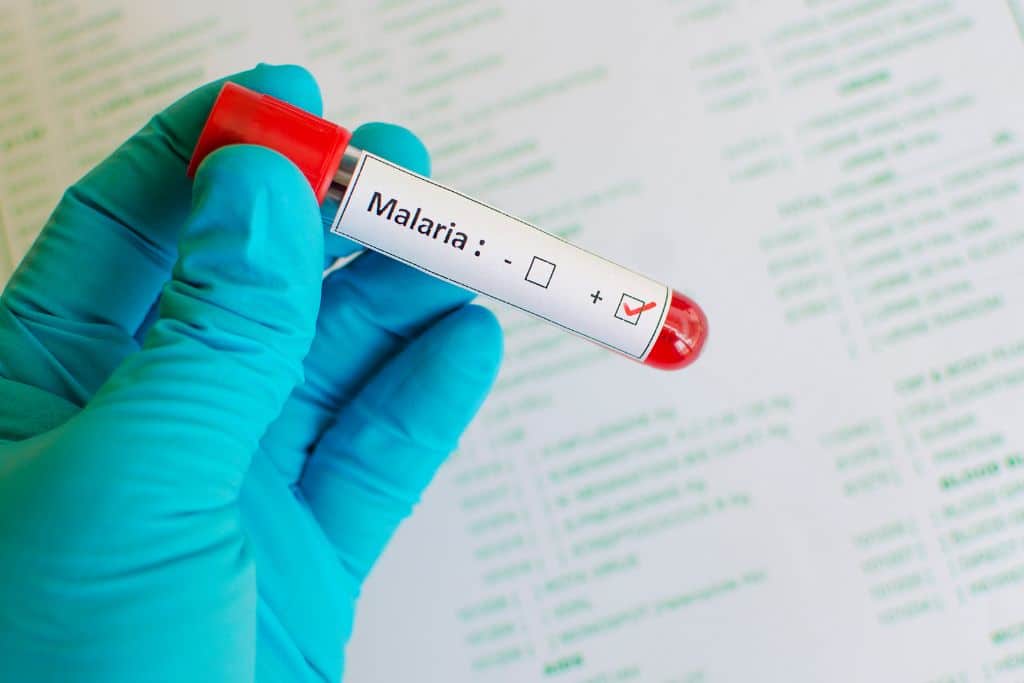
First Aid Basics
First Aid Basics are the foundation of any well-prepared travel medical kit.
While you’re hopefully not planning to deal with cuts, blisters, or scrapes on your trip, these minor issues are surprisingly common.
Especially if you’re doing a lot of walking, hiking, or outdoor activities.
Packing a few simple first aid items means you can treat small problems immediately, without needing to hunt down a pharmacy in an unfamiliar area.
There is nothing more annoying than having to walk a lot and getting a nasty blister on your foot.
Start with antiseptic wipes or alcohol pads to clean wounds before applying a bandage.
Make sure you get different sizes of band-aids and that you have some in your day pack at all times.
In addition, sterile gauze pads and medical tape are useful for slightly larger wounds.
A compact digital thermometer is another smart addition to monitor fevers or general health if you start feeling unwell.
And don’t forget a travel-size hand sanitizer to keep things clean when running water isn’t available.

Recovery & Staying Healthy While Travelling
Staying healthy while traveling isn’t just about treating symptoms.
It’s also about prevention and giving your body the support it needs to recover quickly when you’re worn down.
Between long flights, time zone changes, new foods, and unfamiliar environments, your immune system can take a hit.
Packing a few key wellness items can help you bounce back faster and stay energized throughout your trip.
Travel Probiotics
Probiotics can be a great way to support your digestive system. Especially when your gut is adjusting to new foods, water sources, and eating schedules.
A daily probiotic may help prevent or reduce symptoms of traveler’s diarrhea, bloating, and constipation.
Look for shelf-stable options that don’t require refrigeration—perfect for carry-on bags or travel backpacks.
If you’re particularly sensitive to dietary changes or prone to stomach issues, start taking them a few days before your trip for best results.

Vitamins
A daily multivitamin can help fill any nutritional gaps, especially if you’re eating on the go and not getting your usual variety of fruits and vegetables.
Many travelers also pack vitamin C, zinc, or immune support blends (like Airborne or Emergen-C) to help fight off colds and boost immunity during flights or after long travel days.
If you’re traveling to low-sunlight regions or for an extended period, vitamin D might be worth adding too.
Electrolytes
Staying hydrated is key while traveling. Especially on hot days, long flights, or after bouts of illness like diarrhea or vomiting.
Electrolyte powders or tablets are compact and easy to carry. Also, they’re great for replenishing lost salts and minerals after sweating, drinking alcohol, or feeling jet-lagged.
Look for options with low sugar and a balanced mix of sodium, potassium, magnesium, and calcium.
Just mix with water for a quick energy boost and faster recovery.
I have included a list of all the medications for you, so it is easy to download and print.
Here it is: Meds Checklist Freebie (no email needed, just grab it)
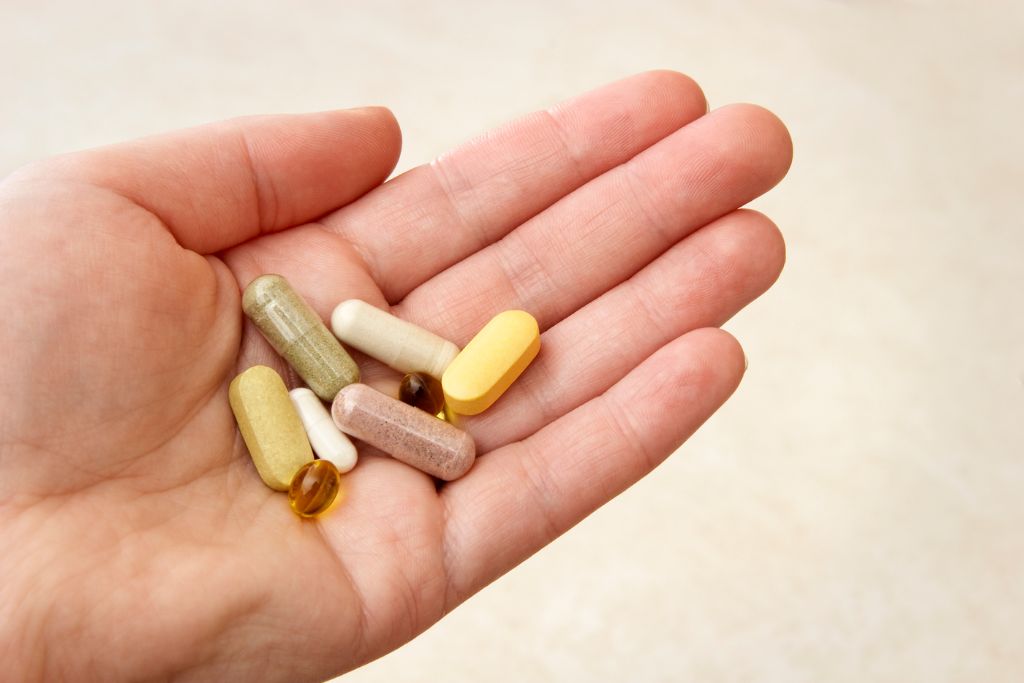
Smart Tips For Packing Medications When You Travel
Below are some quick tips to remember when you are packing your essential travel medications.
- Don’t Forget the Basics: Even if you’re healthy, bring common over-the-counter meds. It’s much easier than trying to find a pharmacy abroad when you’re not feeling well.
- Always Pack Medications in Your Carry-On: Never check essential medications in your luggage. You don’t want to lose access if your bag is delayed or lost.
- Keep Prescription Meds in Original Packaging: This helps avoid issues at customs and makes it easier to identify your medication in case of an emergency.
- Bring a Few Extra Days’ Supply: Delays happen often. Carry more medication than you need, just in case your return gets pushed back.

- Carry a Copy of Your Prescriptions – A printed list or digital photo of your prescriptions can be a lifesaver if you lose your meds or need to refill them abroad.
- Check Travel Restrictions: Some countries have strict rules about certain medications (e.g., strong painkillers, stimulants). Always check regulations before you go.
- Organize with a Pill Case or Travel Pouch: Use a labeled pill organizer or small pouch to keep everything easy to access and neatly stored.
- Set Reminders for Time Zone Changes: If you take medication at specific times, set alarms to adjust for time zone differences and keep your routine on track.
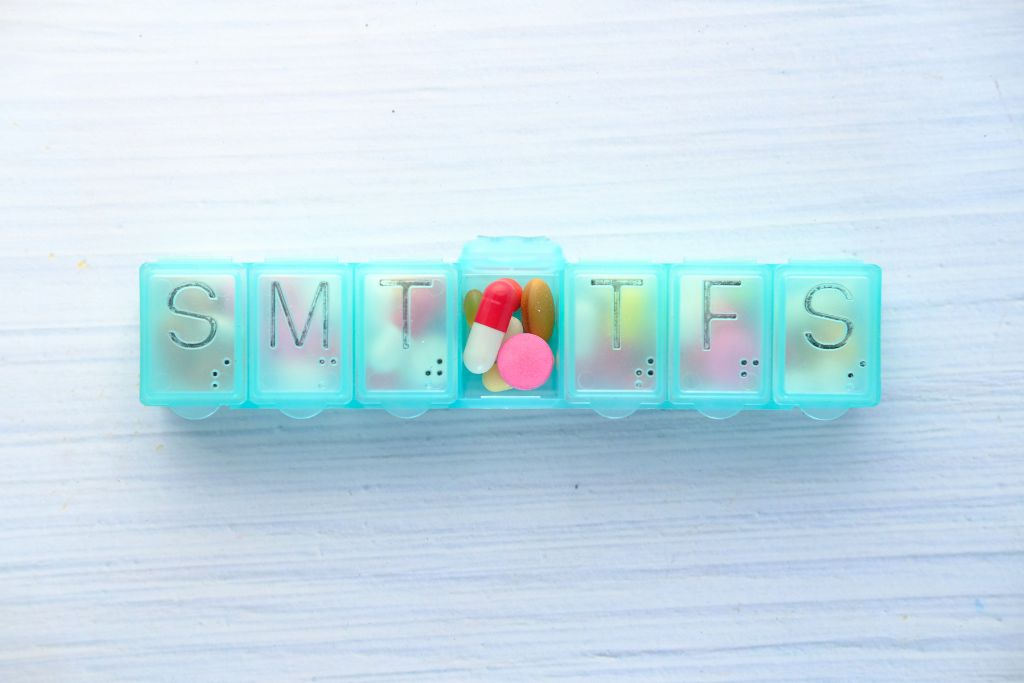
Conclusion – Essential Travel Medications: Here’s What To Pack For A Worry-Free Trip
Travelling is all about adventure and discovery, but staying healthy on the road is key to enjoying every moment.
I hope you do not need to use any of the meds above. However, one thing I have learned from traveling is to be prepared.
Packing the right medications can save you time, stress, and discomfort when unexpected issues pop up (and they will).
From everyday pain relief to stomach meds and prescription essentials, being prepared means you can focus on making memories, not searching for a pharmacy.
So before you zip up your suitcase, double-check your travel health kit—it’s one of the smartest things you can bring with you.
It is better to be ready and not need them than be in a situation where you really need medicine and can’t get it.


